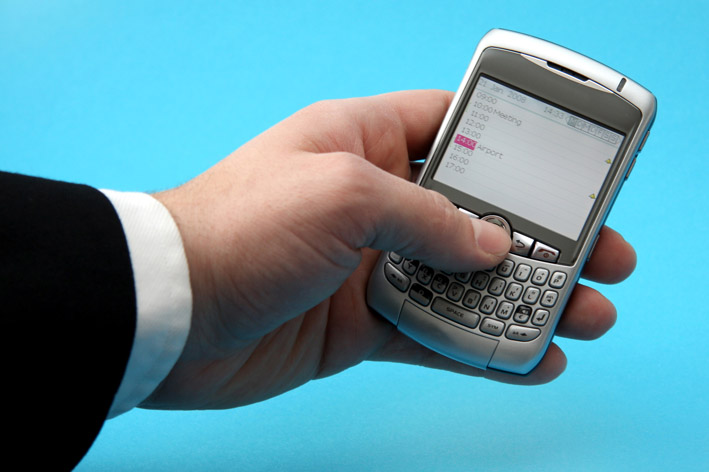Will IM and SMS overtake email in mobile comms?
With applications such as instant messaging and threaded SMS popping up on handsets, are we getting lazy, or is this the dawn of a new email-free mobile communications era?


Sign up today and you will receive a free copy of our Future Focus 2025 report - the leading guidance on AI, cybersecurity and other IT challenges as per 700+ senior executives
You are now subscribed
Your newsletter sign-up was successful
Communicating on the move is becoming more and more important in the world of business, as mobile working becomes more of a reality and mobile devices allow for such trends.
Applications such as Google's suite of communication tools and Microsoft's Windows Live Messenger are now coming preloaded on smartphones, so it's no surprise that these apps are getting more and more popular.
Growing popularity
Google estimates there are 50 million+ Google Talk users on the open standard XMPP network, sending billions of messages every week. As the application is based on open standards, consumers on all different phone platforms have a variety of IM applications to choose from that all work with Google Talk.
Seth Demsey, lead product manager at Google, said that people want to communicate with each other regardless of what platform or device they are using. Mobile integration allows for presence when users are away from their PCs and thus becomes increasingly useful as mobile devices are becoming more pervasive.
"The value of an IM network is not in the number of total users so much as in the number of users who are available to communicate, across platforms, operating systems and devices," he told IT PRO.
James McCarthy, head of business marketing at Microsoft, agreed that all ways of communicating are advantageous.
Sign up today and you will receive a free copy of our Future Focus 2025 report - the leading guidance on AI, cybersecurity and other IT challenges as per 700+ senior executives
"The various communication methods all have their place in interacting with others. For example, IM is good for a real-time conversation, often used when you can identify that someone is online and you want a relatively informal dialogue," he told IT PRO.
"SMS has a store-and-forward capability, so you can text someone and be sure that they will get it soon, even if not instantly. Finally, email is perfect to send attachments, or to a large distribution of people, maybe in a more formal way."
Working together
The boundaries of collaboration are certainly changing and how people choose to communicate in social situations can creep positively into the workplace as well.
McCarthy explained that he can certainly see a world where many types of communication avenues sit alongside each other, with individuals choosing the most suitable based on the situation.
"If your colleague is online and you need a quick question answered, use IM. If not, send a text. If you need to pass on information or have multiple people involved, an email is more appropriate," he explained.
"If you want a more personal interaction, call them on the phone. The more innovative ways we find to communicate with each other, the more we'll find that we can collaborate quickly and easily and drive better more productive relationships," he added.
"Blogging also has a place in the modern business world the exchange of ideas between people is very powerful and, with the appropriate thought, works for business as well as personal contexts."
Threading it together
Another feature appearing on handsets more and more is threaded text and email conversations. Palm has announced it on its new Palm Pre, and it is already installed on many Windows Mobile, BlackBerry and Symbian handsets in addition to the Android-based T-Mobile G1.
McCarthy thinks that threaded SMS/IM certainly can and does replace email in specific situations, but not where a lot of information needs to be conveyed, or perhaps where there's an email chain developing between people, or with information or attachments being forwarded to others.

Clare is the founder of Blue Cactus Digital, a digital marketing company that helps ethical and sustainability-focused businesses grow their customer base.
Prior to becoming a marketer, Clare was a journalist, working at a range of mobile device-focused outlets including Know Your Mobile before moving into freelance life.
As a freelance writer, she drew on her expertise in mobility to write features and guides for ITPro, as well as regularly writing news stories on a wide range of topics.
-
 Stop treating agentic AI projects like traditional software
Stop treating agentic AI projects like traditional softwareAnalysis Designing and building agents is one thing, but testing and governance is crucial to success
-
 PayPal appoints HP’s Enrique Lores in surprise CEO shake-up
PayPal appoints HP’s Enrique Lores in surprise CEO shake-upNews The veteran tech executive will lead the payments giant into its next growth phase amid mounting industry challenges